Newly relocated South Dallas resident Cassandra Laster and her family moved to the neighborhood hoping for a shorter commute and to give back to the community. They own a home-run dog breeding business, inspired by her son, that has been gaining traction. The Laster family has big plans to move their venture to a larger facility they believe will spur economic growth in South Dallas.
“We had already started looking into having a dog breeding business because we had bought female rottweilers to start breeding, because that’s [my son’s] passion,” Laster explains. “But then we had started watching dogs at home last summer, and he had more dogs than we needed to have — like, I had to start giving him a limit.”
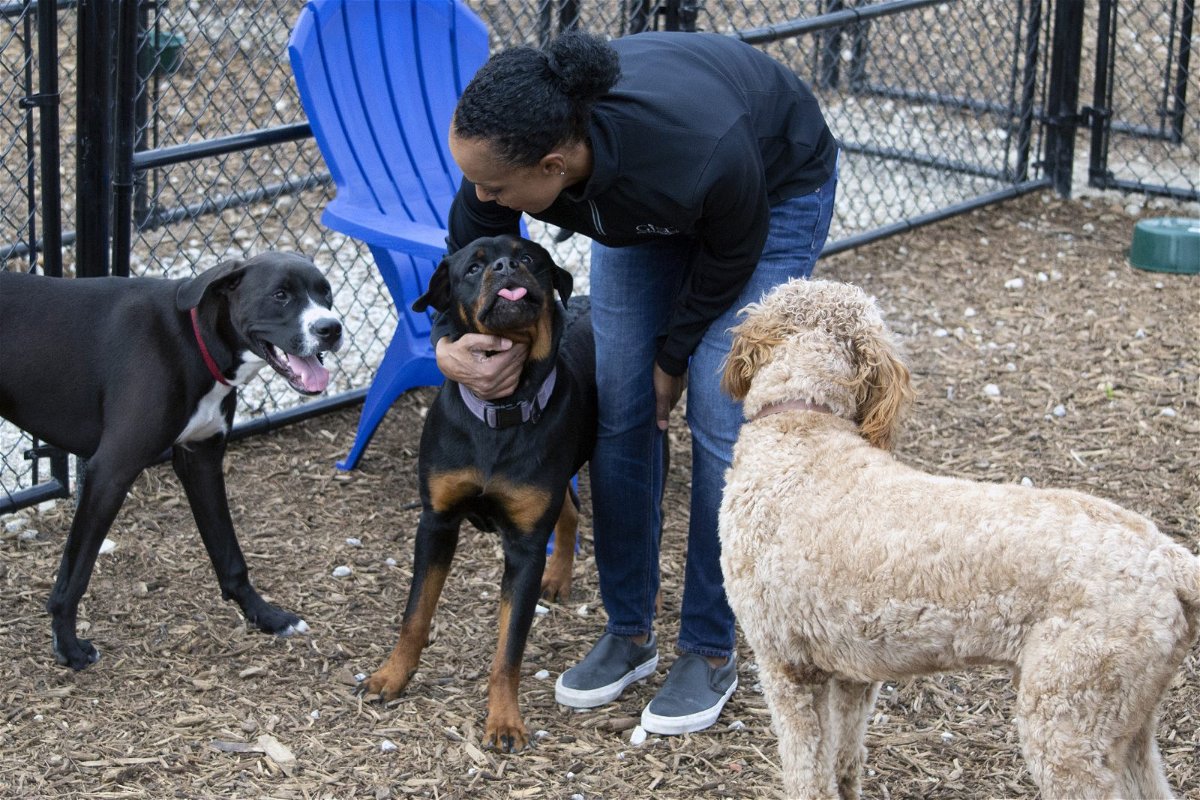
South Dallas was at the top of Laster and her family’s list as they searched for a location for a doggy day care facility. They hope to change the neighborhood’s business landscape by opening a business that accepts unwanted dogs and also hires people with a criminal history struggling to find employment.
“We want to be in South Dallas,” Laster says. “We want to be close to our home, we want to stimulate the economy, I want people to work that may have a background that, maybe they were in trouble with the law, but nothing that they can’t be rehabilitated.”
Over the last few months working from home and having more time on their hands, courtesy of the current COVID pandemic, Laster and her family began their search for leasing opportunities. They were turned down by their first prospective site, but then Laster came upon a family-owned business looking to lease part of its 44,000 square foot building on Logan Street. The owner was very supportive, Laster says, and the only thing standing in the way of the Laster family and their doggy daycare business was zoning.
What is zoning, and why does it exist?
The entire City of Dallas is divided into zoning districts that determine where homes, industrial uses, stores and other uses can exist. The general purpose of zoning is to ensure that a city will grow and evolve in a way that benefits the general public’s safety and wellness. The zoning process in the City of Dallas operates out of the sustainable development and construction department in Dallas’ current planning division.
As required by the zoning process, if you want to develop land, you must obtain proper zoning prior to starting construction. If the land doesn’t already meet proper zoning requirements, the owner must file an application for a zoning change for the proposed development. The three types of zoning changes are: 1) general zoning change; 2) planned development district (PDD); and 3) specific use permit (SUP), each with their own processes and requirements.
(Read the Inclusive Community Project’s guide to Planned Development Districts (PDs).)
Each zoning proposal lasts approximately 10-14 weeks from filing the application to City Council approval, according to the City of Dallas’ zoning change information packet. The process includes two public hearings where people can speak for or against a zoning change, first to the City Plan Commission, whose commissioners are appointed by the City Council, and then to council members themselves.
Rezoning for a doggie daycare
Laster’s first step was contacting the city to see if the property’s zoning for industrial improvement uses could be changed to commercial improvements, allowing for a doggy daycare with grooming, boarding, training and other pet services.
“I first reached out to a city employee to ask, could this be rezoned? What did they think?” Laster says.
The response was not what she had expected. Recalling the experience as “discouraging,” Laster says the city employee told her the city would not support her proposal for rezoning.
“So if somebody said that to you who works for the city, and you’re a mere mortal, what would you do?” Laster says. “You would say, OK, let me go find another spot.”
Despite there being plenty of other warehouses available for lease in places like the Design District or Oak Cliff, Laster says she wanted her business to stay in South Dallas because there aren’t many like it in the neighborhood.
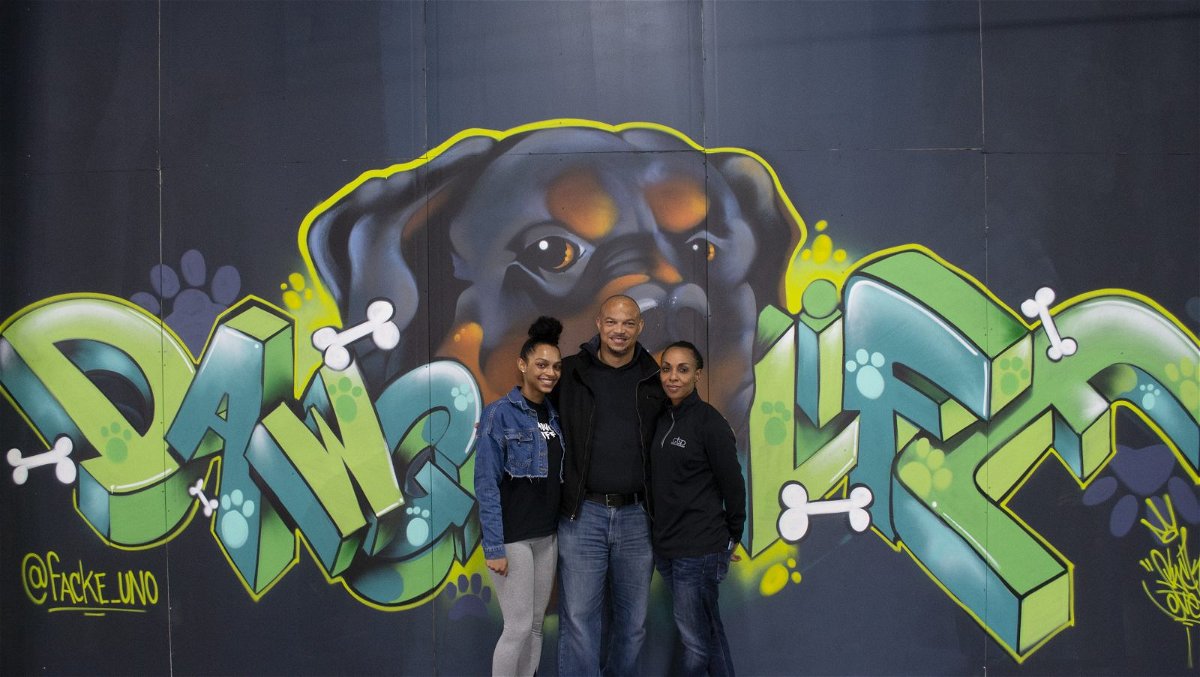
City Councilman Adam Bazaldua, whose District 7 encompasses South Dallas, says this is no coincidence, as many neighborhood residents are spending their money elsewhere in neighboring areas.
“What we have become somewhat complacent to is that demand is poached out of our community and the money is spent in other communities,” Bazaldua says.
After Laster received the discouraging email from the city staffer, she immediately contacted Bazaldua, who is her councilman.
“I asked my council person to meet with me at the location to see what he thought, and he did,” Laster says. “And he looked around and he said, ‘This is a perfect spot and we have a lot of things developing and coming.’ ”
Entertainment venue on Malcolm X Boulevard
In fact, nearly a year ago, Irving resident Adina Starke requested a zoning change that would allow her to convert her photography studio on Malcolm X Boulevard in South Dallas to an entertainment venue.
Starke’s Enchantment Designs studio is right across Malcolm X from Aunt Irene’s Kitchen. The COVID-19 pandemic slowed down her zoning timeline, and though she filed her application in November 2019, she didn’t present her proposal to the Dallas Plan Commission until June 2020.
“I would like to expand to include small events — private celebrations, bridal showers, baby showers, networking events, business trainings, things of that nature,” Starke told the commissioners. “I think it would be a good opportunity for the community for local residents to use this space.”
Her property’s neighborhood commercial zoning wouldn’t allow for such uses, so Starke requested a change to community commercial zoning. But Gwendolyn Satterthwaithe, the owner of the property next door, expressed concern that such zoning would allow for uses such as an adult cabaret or dance hall, “which would be objectionable and have a detrimental impact,” Satterthwaithe told commissioners.
Starke assured both Satterthwaithe and the commissioners that “we do not have anything planned that would be detrimental to your building,” and would prevent parking or littering on neighboring sites.
“We want to ensure that we have a positive image in the neighborhood and, of course, to our neighbors,” Starke said.
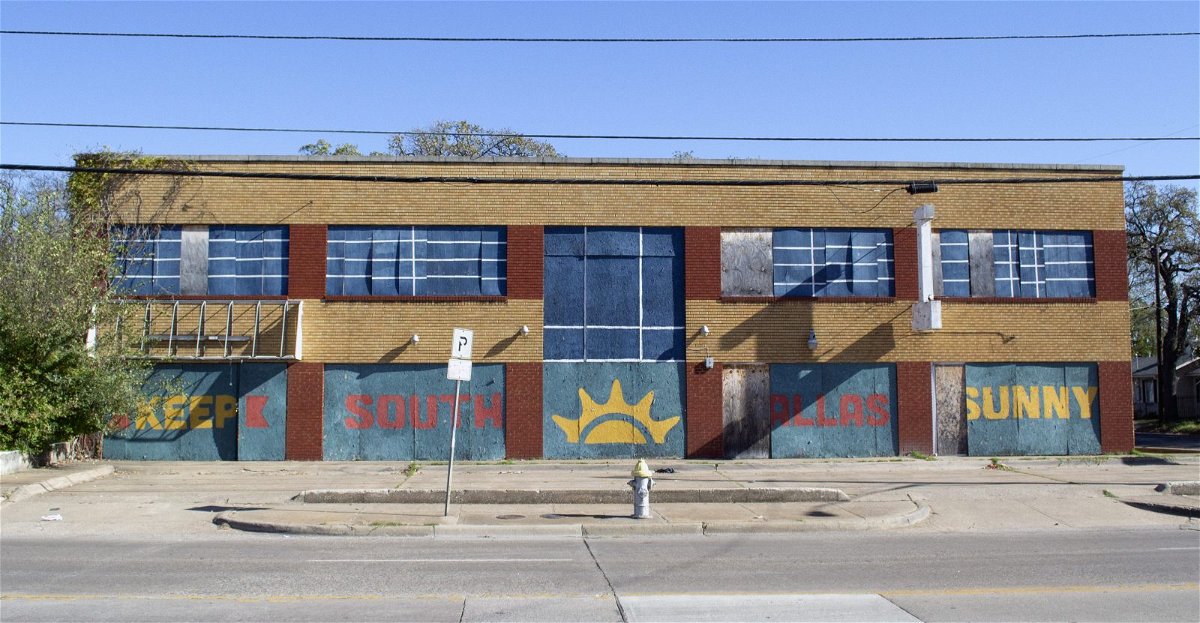
In the end, the plan commission, and later the city council, approved Starke’s rezoning with conditions. The special use permit prohibits an adult arcade, adult cabaret, adult theater, billiard hall, bowling alley, motor track or skating rink. None of these were among Starke’s business plans, but zoning sets standards for not just current but also future owners. The approval also included deed restrictions such as a solid screening fence maintained along the northern property line and business operating hours from 8 a.m. to 10 p.m., Sunday through Thursday, and 8 a.m. to 1 a.m., Friday and Saturday.
Rolling out the welcome mat to small businesses
Commissioner Timothy Jackson, whom Bazaldua appointed to the plan commission, noted that he didn’t even know Starke’s business existed in the community.
“It’s important to welcome businesses like this to the area,” Jackson said, as he moved to approve Starke’s proposal. “In South Dallas, we definitely need more businesses like this.”
Bazaldua says Starke’s entertainment venue will be an asset to the community because an entertainment venue like that doesn’t currently exist.
“The more things that we bring in that keep our residents in our community spending their money here, the more we create that ecosystem of a sustainable economy that is going to give back to this community, instead of all of our dollars being spent elsewhere,” Bazaldua says.
That’s one reason Laster kept working toward a South Dallas site for her doggy day care. Because she had no prior experience with the zoning process, Laster sought advice from a zoning consultant she knows. He adamantly advised her against pursuing the zoning change, warning of the painstaking work ahead.
“He said, the city of Dallas is the worst place if you don’t know what you are doing. For a small person like you, you’re going to spend a lot of money and you might end up not having anything,” Laster recalls.
Laster says her zoning proposal is still in the permitting phase. She turned in her documents two months ago, but has yet to receive any correspondence from the city. She later discovered the department lost her paperwork.
“I’ve had over 30 communications trying to get them to respond to me, trying to get help,” Laster says. “I didn’t get any help until I got [Councilman] Adam [Bazaldua] involved, and I shouldn’t have to do that because the average person does not know to get your council person involved.”
Native plant nursery backing up to the Great Trinity Forest
The experience was quite different for Lake Highlands resident Evo Sadowsky. She wants to open a native plant nursery on Pemberton Hill Road, just outside South Dallas near the River Ranch at Texas Horse Park. Sadowsky says the city was “surprisingly helpful” when she submitted her proposal to change the zoning for three vacant lots from residential to commercial retail.
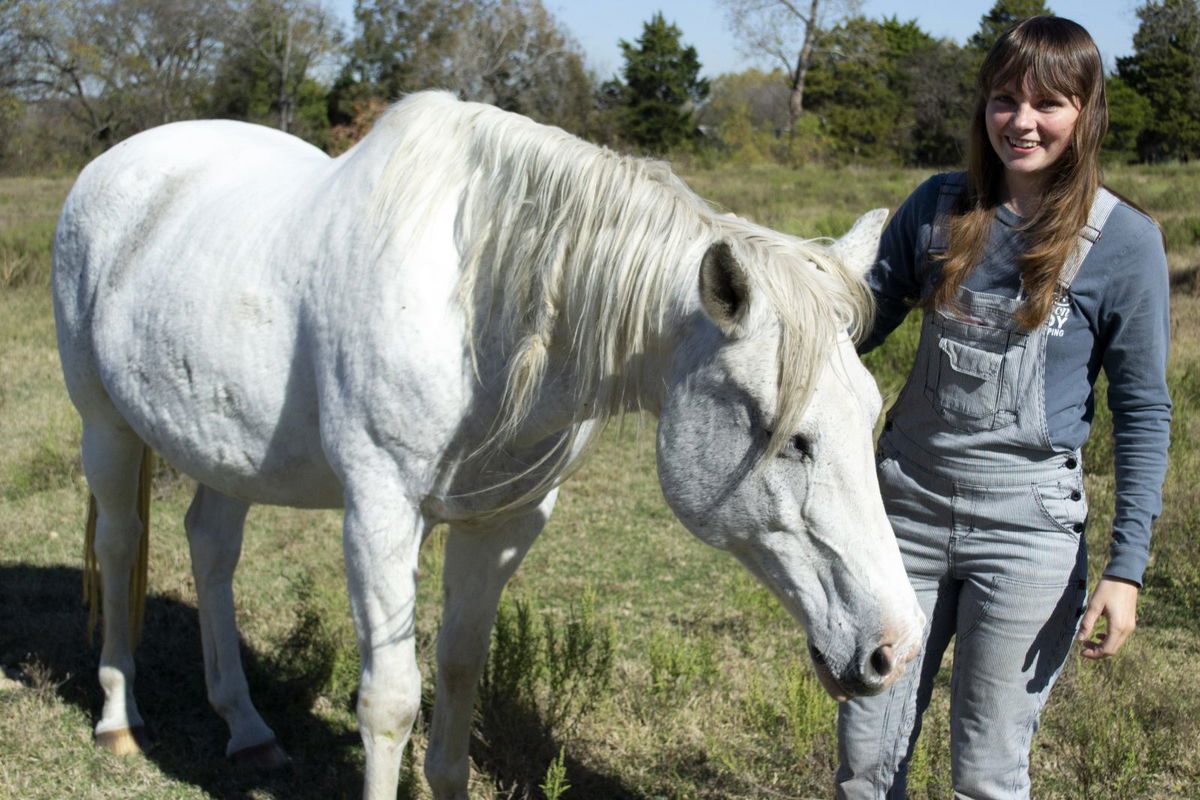
“Everybody always complains about working with cities, but I will say they exceeded my expectations,” Sadowsky says. “When I first met with them, they sat down with us, let us ask all of our questions, and they weren’t annoyed or short with us — they were very open and helpful.”
Sadowsky hopes to expand her longtime family-owned business, Blue Ribbon Lady Landscaping, with a garden store, nursery and space for educational workshops that she wants to be a resource for the area.
“I think the people there can really benefit from the products and services that I’ll have, and I think I could really benefit from being there in turn,” Sadowsky says. “If it makes sense to be in south Dallas and revitalize one little corner of it, then that’s kind of an added perk.”
Bazaldua describes the zoning process as a complicated one but also believes that there are ways for residents to educate themselves on the topic.
“Zoning is a very intricate subject, and it’s one that I am still learning,” Bazaldua says. “I believe that, a lot like familiarizing yourself with city council by tuning into meetings, doing the same with the city planning commission and hearing how the processes go would be helpful.”
Residents also have a chance to speak in opposition or support whenever a zoning proposal comes up, even if they don’t live near the property where the zoning change is being proposed.
“If you’re in the immediate vicinity of a certain notification range, you will have gotten a ballot that you have the opportunity to give feedback of opposition or support,” for the proposal, Bazaldua says. “But then if you are not, you have the opportunity to come and speak at city council. You also have that opportunity with the people from the plan commission, not only through their meeting but also community meetings.”
Zoning toward a better business ecosystem
Laster and Sadowsky both strongly advise anyone preparing to enter the zoning process to surround themselves with supportive people.
“I just needed somebody to say, ‘You’re doing great, we have this done, all we need to do is this,’ and kind of keep me on schedule,” Sadowsky says. “My biggest bit of advice would be to get a support system of people who are actually committed to helping.”
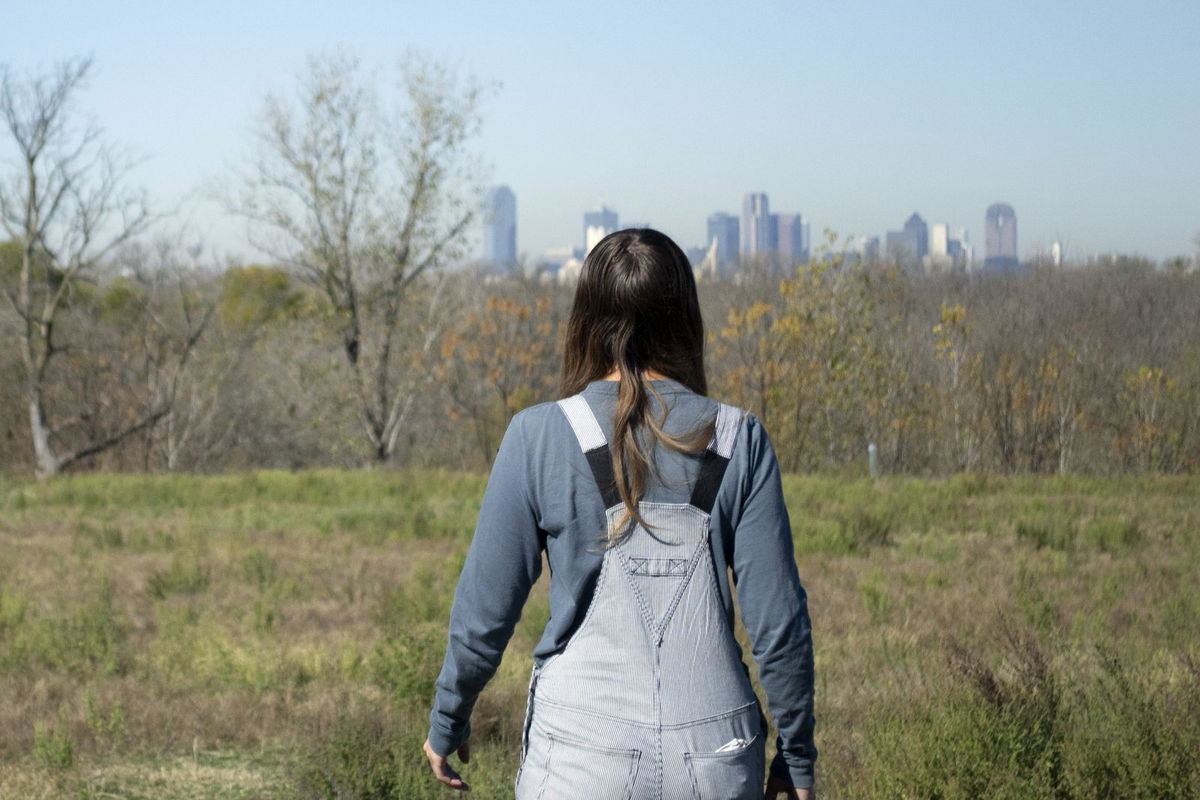
Laster says her process was mostly discouraging but her interaction with Bazaldua was motivating.
“Honestly, the most beneficial thing that I had — and it was the only thing that kept me going — is that you gotta involve your council person,” Laster says. “That would be my best advice — get your council person and your district planner involved.”
Bazaldua believes South Dallas needs a zoning review and updates so that small business owners won’t have to fight or go through an expensive and lengthy process to be able to open a business that the neighborhood would welcome. Zoning can protect residents from undesirable and harmful uses, but land that is inappropriately zoned creates barriers for people who lack the funds and know-how.
Appropriate zoning “is the ultimate goal,” Bazaldua says, “so that it is a more streamlined, smoother process for small business owners.”
ICP Beginner Guide to Zoning 101 (English version) by Dallas Free Press on Scribd
For more zoning resources, visit the Inclusive Communities Project website to learn about its People’s Zoning Workshops, part of its work toward fair housing.
This story was co-published by our media partner, the Dallas Weekly.
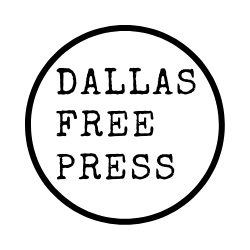
Leave a Reply